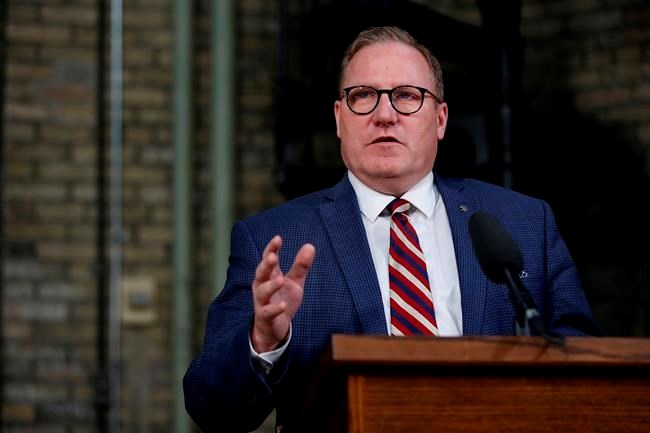WINNIPEG — The Manitoba government is easing its so-called payroll tax in order to be more competitive with Alberta, Saskatchewan and other provinces that don't have the levy.
The tax, formally called the health and post-secondary education levy, applies to employers with total annual payrolls of more than $1.25 million. Every salary dollar above that threshold is taxed at a rate of 4.3 per cent.
The government is raising the threshold to $1.5 million as of next January, said Finance Minister Scott Fielding. It's the first increase of the threshold since 2007, and Fielding said it will remove some 220 employers from having to pay the tax.
"We think this is really important for Manitobans and the growth of jobs here in the province of Manitoba," Fielding said Tuesday, one day before the provincial budget.
The province is also raising a second threshold — one at which companies pay a lower 2.15 per cent rate but on their entire payroll. That threshold will jump to $3 million from $2.5 million.
Jamie Kozak, principal architect at Prairie Architects Inc., joined Fielding at the announcement and said the changes will leave his firm with an extra $5,000 a year.
"We will be able to reinvest the tax savings into operational costs such as software licences and new computers," Kozak said.
It's the second tax cut the Progressive Conservative government has announced prior to the budget. Last week, it announced a one-point drop in the provincial sales tax for July 1, which will be partially offset by a new $25 per tonne carbon tax.
Despite the downturn in stock markets and economic uncertainty due to the spread of the novel coronavirus, Fielding said the province can afford the tax cuts.
"I would suggest to you with uncertain times, it's more important to provide some tax relief to small and medium-sized businesses," Fielding said.
The government has also boosted its fiscal stabilization account, commonly known as the rainy-day fund, by hundreds of millions of dollars, he added.
This report by The Canadian Press was first published on March 10, 2020
Steve Lambert, The Canadian Press



